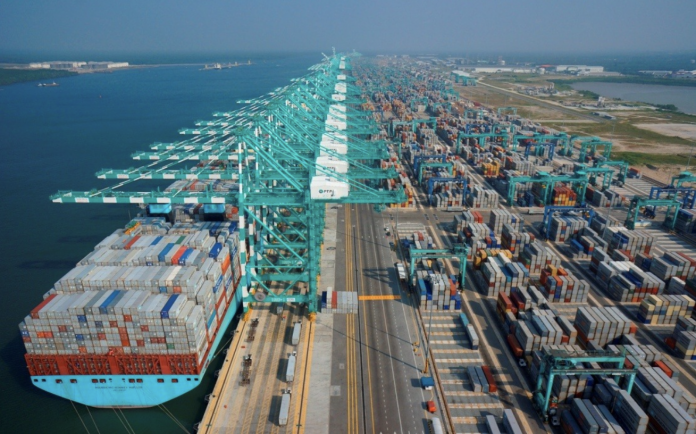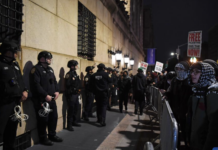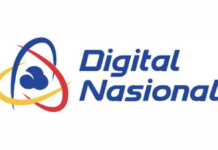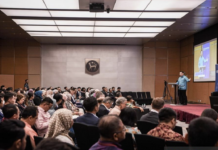KUALA LUMPUR, Dec 14 — The maritime industry was in an awkward spot in 2021 as it was caught between the fallout of the pandemic and the threat of new variations weighing on global trade, causing changes in the global supply chain and entangling in a heated debate over cabotage policy.
The government imposed the Movement Control Order (MCO) in the first quarter of the year and again in mid-2021 to combat the spread of COVID-19, putting the maritime industry in doldrums due to uncertainty and disruptions in business operations.
Factories, port operators, and logistics companies established standard operating procedure (SOPs) to safeguard their workforce from infection and to remain in operation.
However, despite multiple SOPs and stringent measures imposed by the government, clusters of infections hit manufacturers across the board, namely chip manufacturing and the production of capacitors, resistors, and other key modules used in consumer electronics and automobiles, hence disrupting output.
Malaysia’s daily infection rate peaked at above 22,000 cases in September.
Suez Canal and Yantian’s Port Crises
While the pandemic induced shocks have already exhausted the global shipping industry, resulting in global shipping delays, the closure of Shenzhen’s Yantian International Terminal and the Suez Canal blockage crisis had just added another layer of uncertainties to an already strained supply chain.
The scenario is a clear evident that the globalised shipping industry is vulnerable not only to geopolitical tensions, natural disasters but also man-made disasters wherever they occur on the planet.
Fortunately for Malaysia, the impact of Suez Canal crisis was minimal as the country’s ports are well equipped to handle more than a ship at a time, and Port Klang and Port of Tanjung Pelepas were the only Malaysian ports receiving calls from Europe and the Mediterranean.
But it was not the same with Yantian port backlogs, where Malaysia was exposed to supply-chain disruptions due to backlogs of semiconductor goods, appliances, commodities, consumer goods, automobiles, plastics, textiles, and many other exported goods from China.
Cabotage Policy
The policy is practiced in 91 countries worldwide and this include neighbouring Indonesia and the Philippines to protect their own shipping industry and the growth of its services.
This topic has been hotly debated in Parliament and within the industry this year, and that local companies should be prioritised when it comes to works within national waters.
It means that when it comes to transporting goods to East Malaysia, or even when Sabah and Sarawak deliver goods to each other, local vessels should be prioritised over foreign ones.
The Malaysia Shipowners’ Association and Malaysia Offshore Support Vessel Owners’ Association insisted that cabotage policy should remain to protect Malaysia’s economy, especially in the post-pandemic era as the country’s economy and industries move into the recovery phase.
However, it somewhat contradicts with Malaysia’s aspirations to go big in data hub and artificial intelligence and big data analytics as outlined in MyDIGITAL, which is aimed at accelerating Malaysia’s progress as a technologically-advanced economy through the Malaysia Digital Economy Blueprint.
While that is being debated, it is also pertinent to note that the Malaysia Shipping Masterplan (MSMP), which was launched five years ago (2017-2022) is far from achieving its goals.
A report on the progress of the maritime industry revealed that little emphasis was placed in preparing the maritime industry for the Industrial Revolution (IR) 4.0 in areas such as acquiring technologies and assets, building human capital, and undertaking R&D to move up the digital value chain.
“Despite acknowledging the importance of having skilled human capital to enhance competitiveness, the MSM 2017-2022 and the Malaysian Shipbuilding and Ship Repair Industry Strategic Plan 2020 did not set any specific and measurable targets towards IR 4.0 readiness and digital transformation,” the report said.
Firdausi Suffian, a political economist from Universiti Teknologi MARA (UiTM) Sabah, said Malaysia must once and for all make its stand clear, whether it is pro-domestic and focusing on protecting the interests of local enterprises or emphasising more on foreign direct investment (FDI).
“If you want to protect the interests of domestic enterprises, you need cabotage policy,” he said, but warned that it could be a deterrent to Malaysia’s economy and trade liberalisation.
“If you ask a pure economist, (they would say) simply remove cabotage policy and open the market. However, if you consider the state’s interests, cabotage policy should remain,” he said.
However, regardless of the decision, government should ensure that foreign-flagged vessels that are allowed to repair undersea cables should also train Malaysian workers and emphasis on knowledge-sharing to develop local talents, he added.
Ports
Thought Partners Group Consulting founder and group managing partner Abi Sofian Abdul Hamid said the year’s challenges for port operators were to identify the optimal deployment of resources in the new normal following the initial setback caused by COVID-19 in the first quarter of 2020.
“Local ports are doing reasonably good with no major issues encountered apart from congestion issue at certain peak periods. In fact, it will not be surprising if ports will report a good performance for the year with increased throughput handled.”
For instance, he said MMC’s Port of Tanjung Pelepas hit its milestone and handled their 10 millionth Twenty Foot Equivalence (TEUs) container in early November.
However, it is not always smooth sailing, he said.
“As the lockdown eases, businesses and production are making up for lost time, resulting in supply chain regaining its momentum, but the ports are struggling due to manpower and equipment shortage, creating backlogs.
“While demands are increasing, the shipping capacity is being stretched to the extent that one has to make booking for slots months in advance,” he said.
Outlook
Shipping lines and ports around the world are expected to kick off 2022 with a similar issue faced this year — queuing up for berth outside the respective ports.
“The overflow of backlogs from 2021 will continue until the middle of the year or even the third quarter of 2022, prompting industry players to be ready for the annual festivities rush.
“It’ll (also) be interesting to observe how the nations react to this new variant (Omicron), even though the industry has so far shown resilience,” Abi Sofian said.
Moody’s Investors Service has changed the outlook for the global shipping industry to stable from positive for the next 12 to 18 months due to demand slightly outpacing supply.
The credit rating agency said the change in outlook is driven by tough comparisons with the very strong cash flows generated this year rather than a deteriorating business environment.
Abi Sofian said the other interesting development is that shipping companies such as Maersk Line are putting up their own freight-forwarding divisions as the booming e-commerce sector has created another business avenue.
“Even if these changes eventually lead to a reduction in the supply chain’s costs and inefficiencies, it will take time for its effects to be seen,” he noted.
On other developments, Moody’s Investors Service senior analyst Daniel Harlid said earnings for container and dry bulk carriers were at record levels.
“We expect earnings to fall from their 2021 peak but remain high, nonetheless, limited deliveries of new vessels in 2019 will help keep freight rates elevated.
“Although demand for products and commodities is expected to continue strong in 2022, growth rates are likely to slow down next year and record profits and cash flow have been used to pay down debt,” he said.
He said capital expenditures would continue to rise as Moody’s expects orders for newer, more energy-efficient ships to be a common theme in 2022 as maritime companies prepare for harsher environmental requirements that will progressively be phased in from 2023 onwards.



















